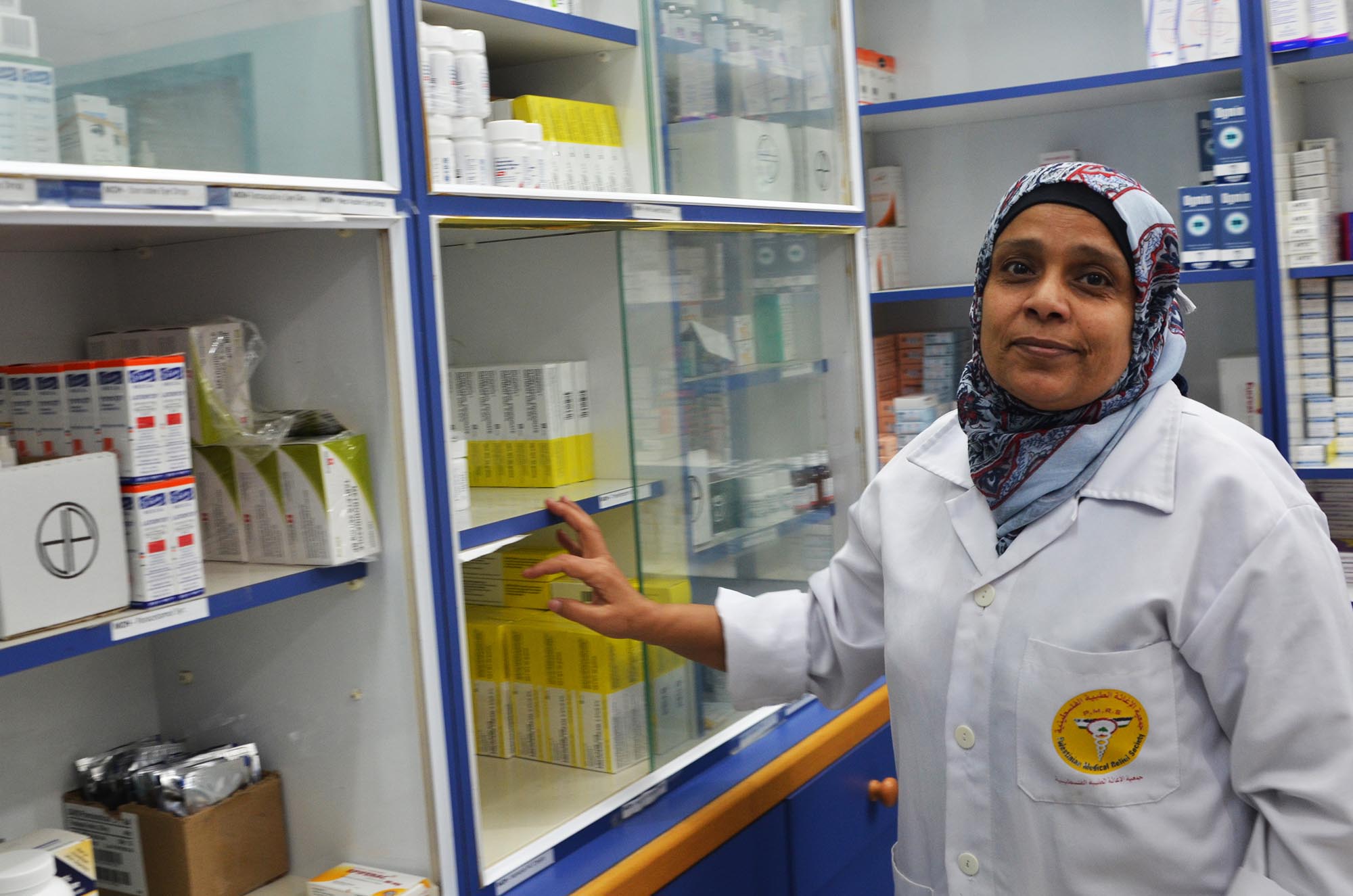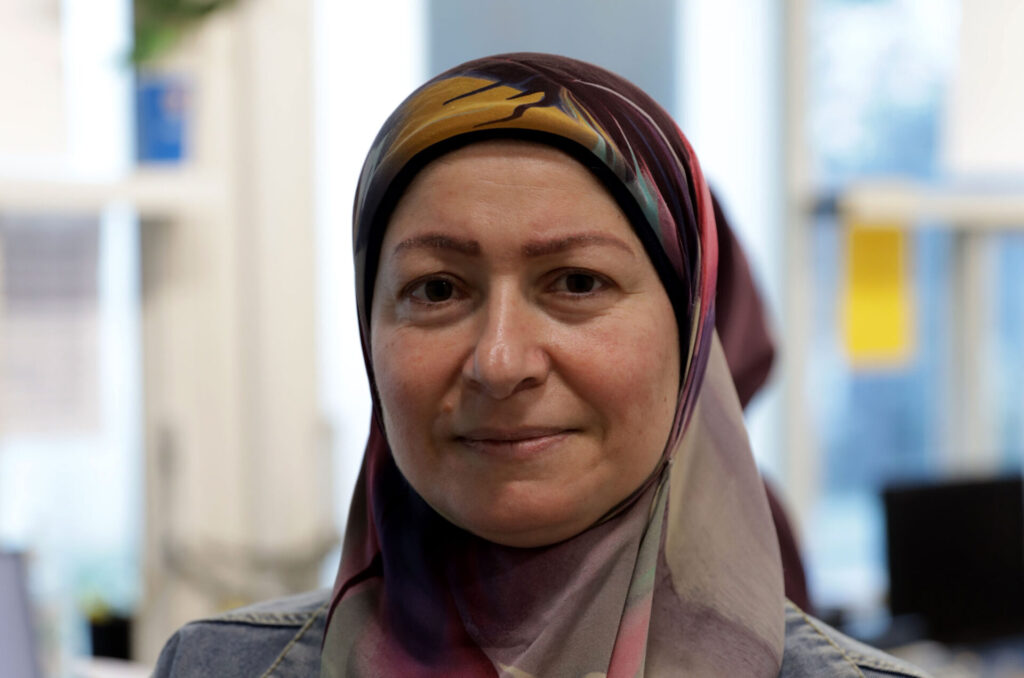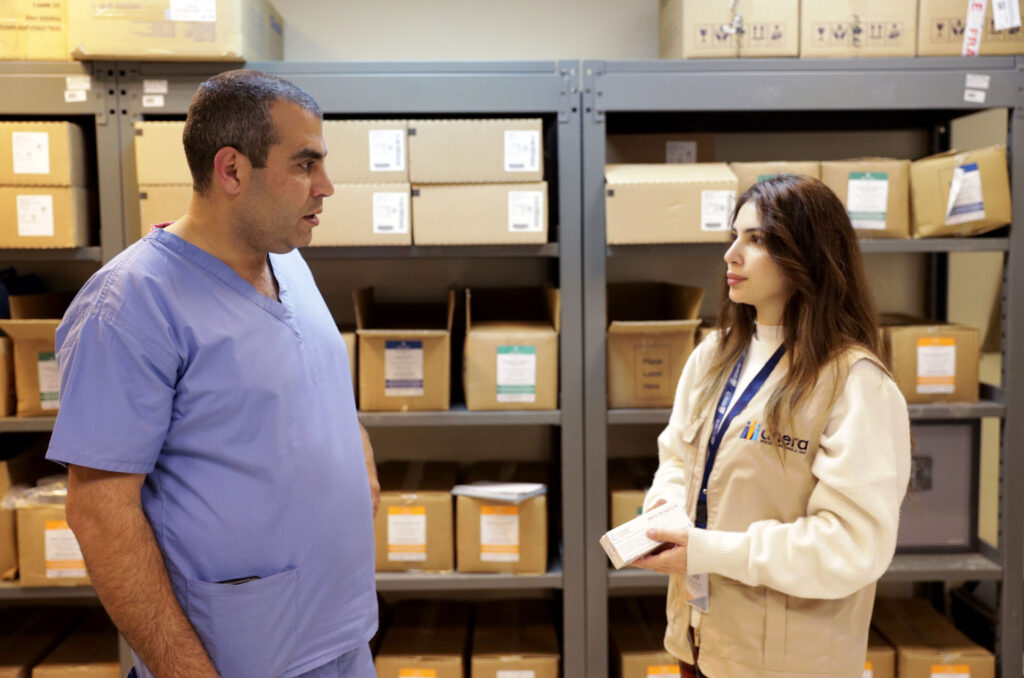Dec, 2017
Known for his good judgment and sound character, Abu Ibrahim was chosen by his local advisory board to be a community counselor.
Now the 61-year-old holds regular counseling sessions to solve family disputes and marital problems. His goal is to work these issues out before the cases have to go to court.
“The tough economic situation in Gaza is a substantial source of problems, particularly among newlyweds,” says Abu Ibrahim, who comes from the village of Om Nasser. “In the old days, life was simple and there were fewer demands.” Today, poverty is rife in Gaza, with 80 percent relying on humanitarian assistance to meet basic needs, and the majority of youth unable to find jobs.
Abu Ibrahim faces the same struggles as much of Gaza, when it comes to securing a steady source of income. Recently, he visited his local clinic in Om Nasser and was diagnosed with high blood pressure, in addition to the chronic asthma he had long been living with. Now he frequently visits the clinic to test his blood pressure, and if it was not for the donated medicines he receives free-of-charge there, he would not be able to afford to care for himself.
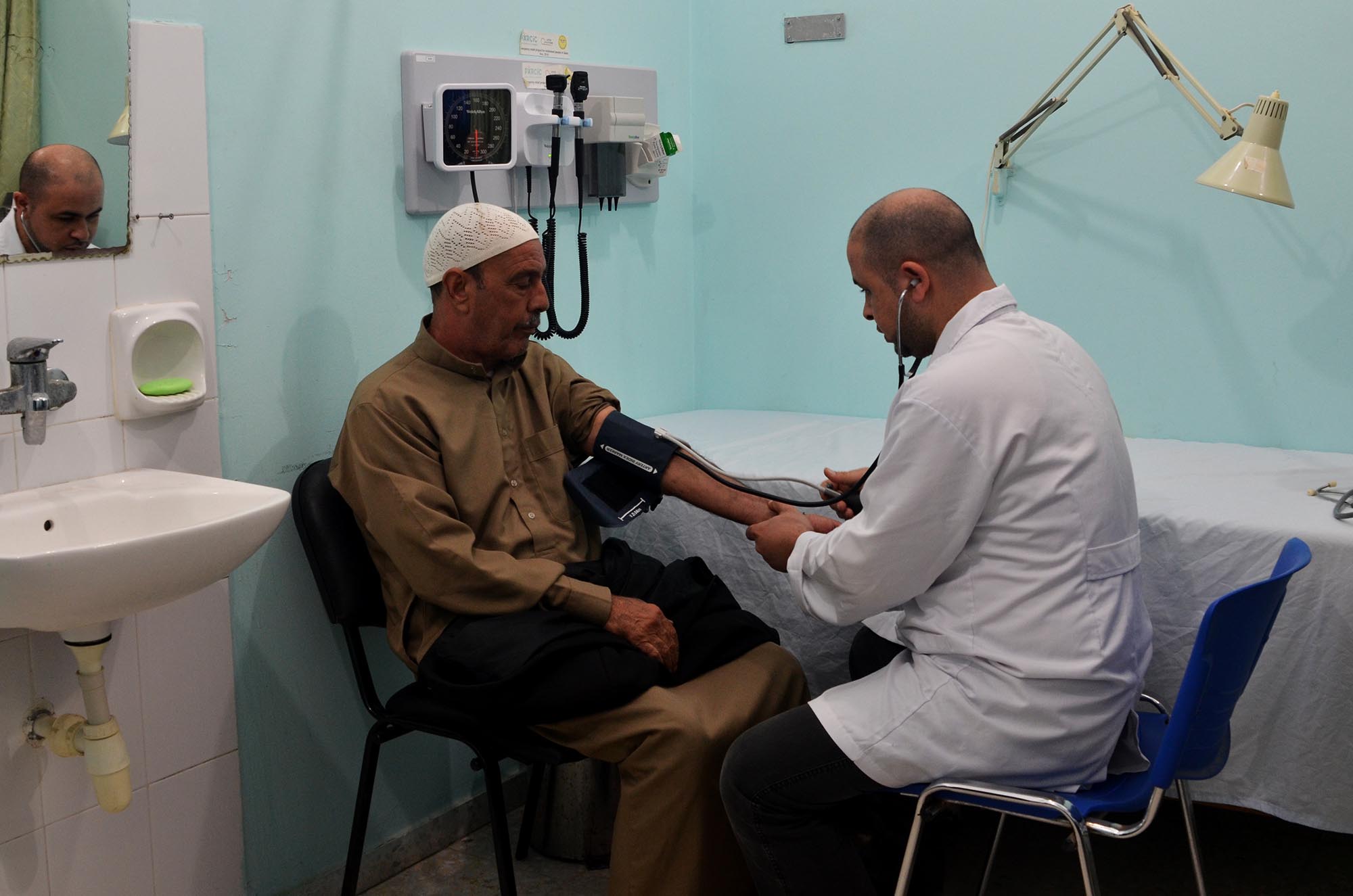

In Gaza, chronic disease patients like Abu Ibrahim suffer from the lack of available medicine. And when medicine is available, it’s often unaffordable. “When my medicine went out of stock, I looked for cheaper alternatives,” he explains. “But that was a huge mistake. I was given the wrong medications.”
At the clinic in Om Nasser, Abu Ibrahim meets with Dr. Shamour to monitor his health. Dr. Shamour prescribed him Valsartan/Hydrochlorothiazide tablets to help control his high blood pressure. The medicine was donated in-kind by Americares and delivered by Anera, where it was distributed to 15 clinics throughout Gaza.
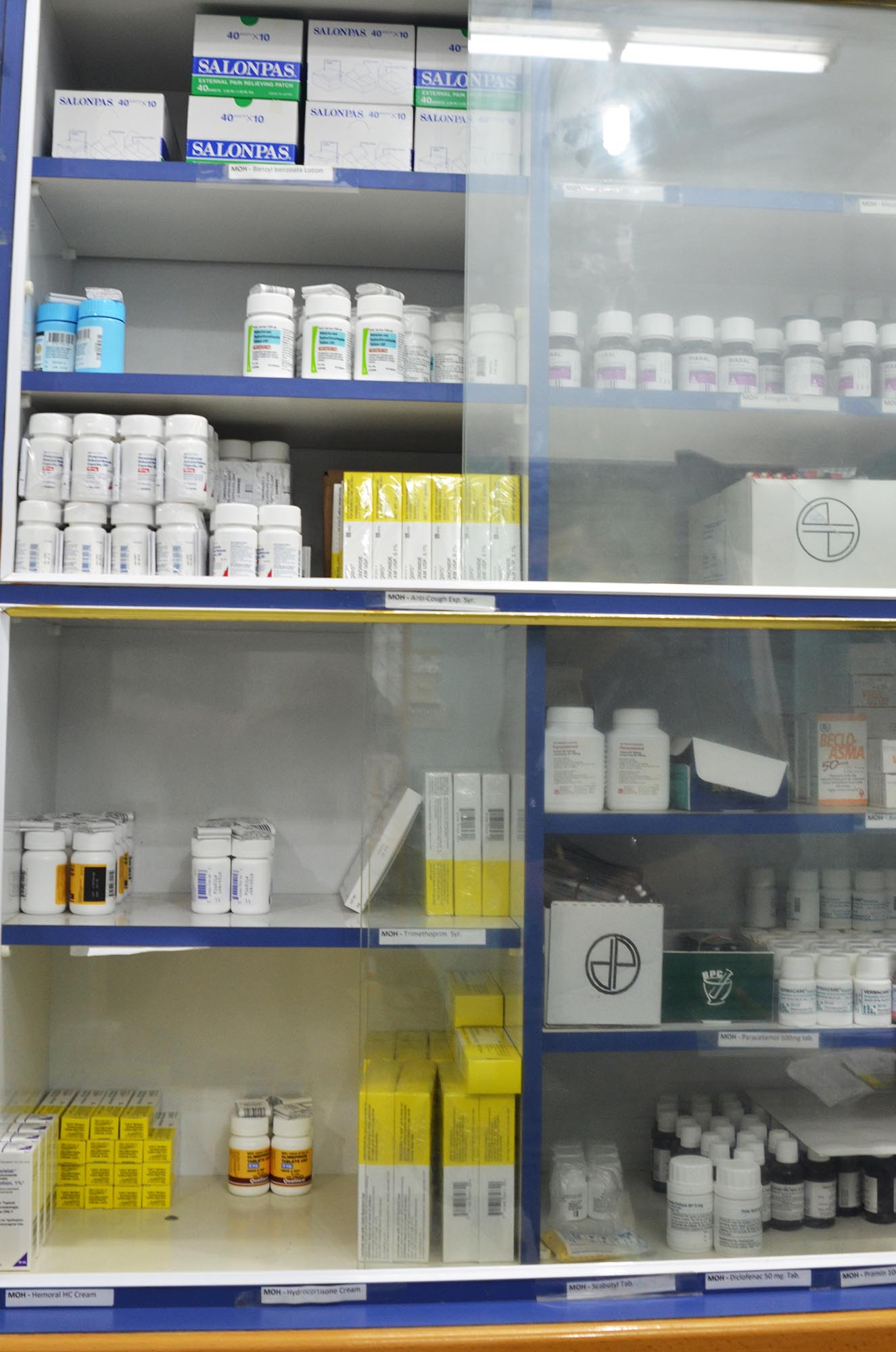

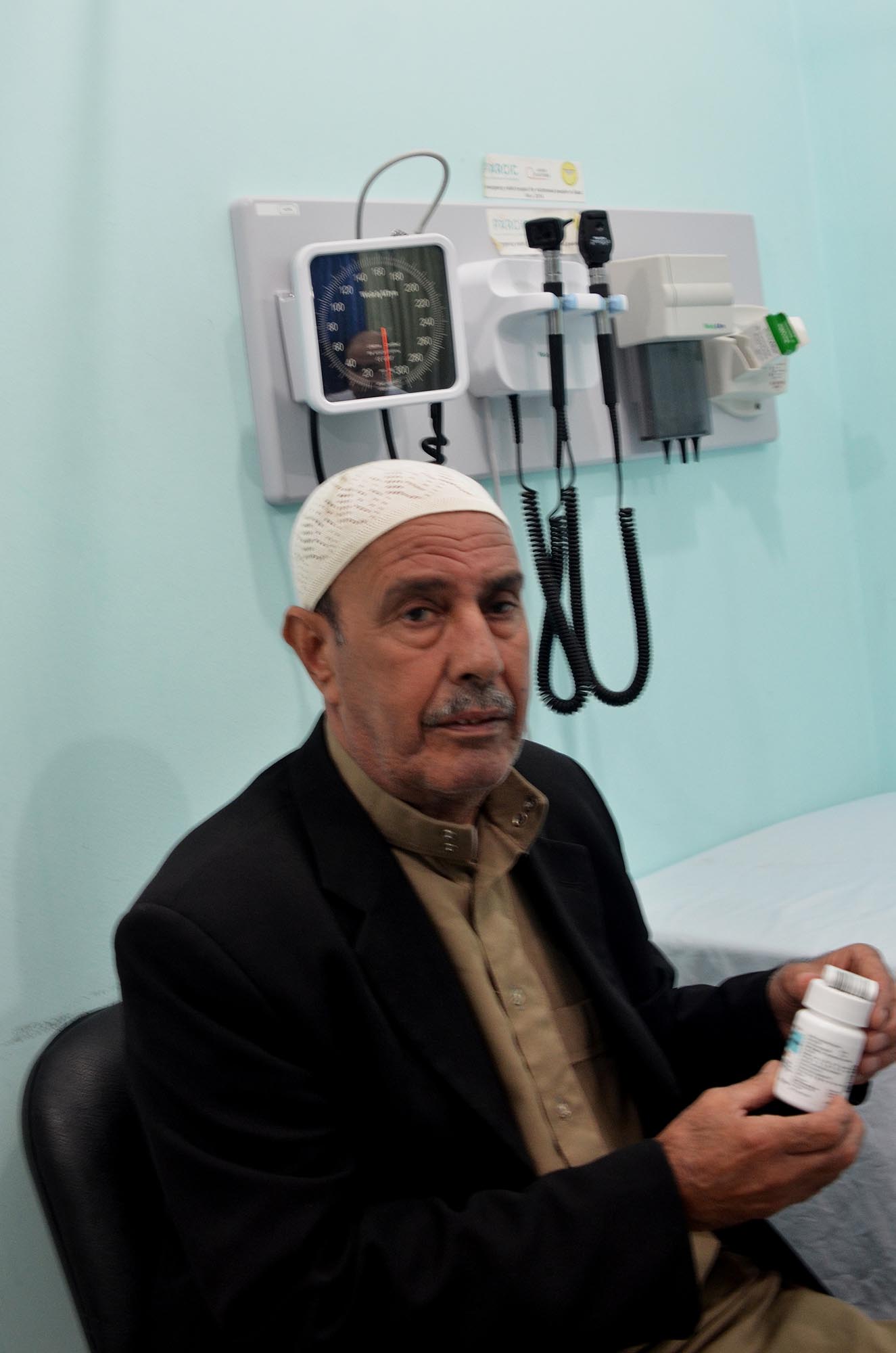

With treatment, Abu Ibrahim’s blood vessels will relax, thereby lowering his hypertension. Dr. Shamour underscored the importance of his prescription medicine, as untreated high blood pressure can increase the workload of the heart and arteries, and can eventually damage blood vessels and cause stroke, heart and kidney failure.
Dr. Shamour says there is a huge shortage of medicine in Gaza, with almost 40 percent of medicines out of stock, particularly those for chronic diseases. There are also many patients waiting for permits to get treatment outside of Gaza. Both the doctor and Abu Ibrahim stress the pressing need for high quality medicines in order to lessen the financial burden on poor families. The majority of Gaza’s residents do not have health insurance.
At one point not long ago, Abu Ibrahim was so tired and ill that he had to stay at home for 45 days. But now his health is improving with the new medicines prescribed by Dr. Shamour. Today, he’s able to do his job again. “I need to get outside, talk and see people,” he says. “I wish Gaza’s borders would open and all people could get the treatment they need.”
